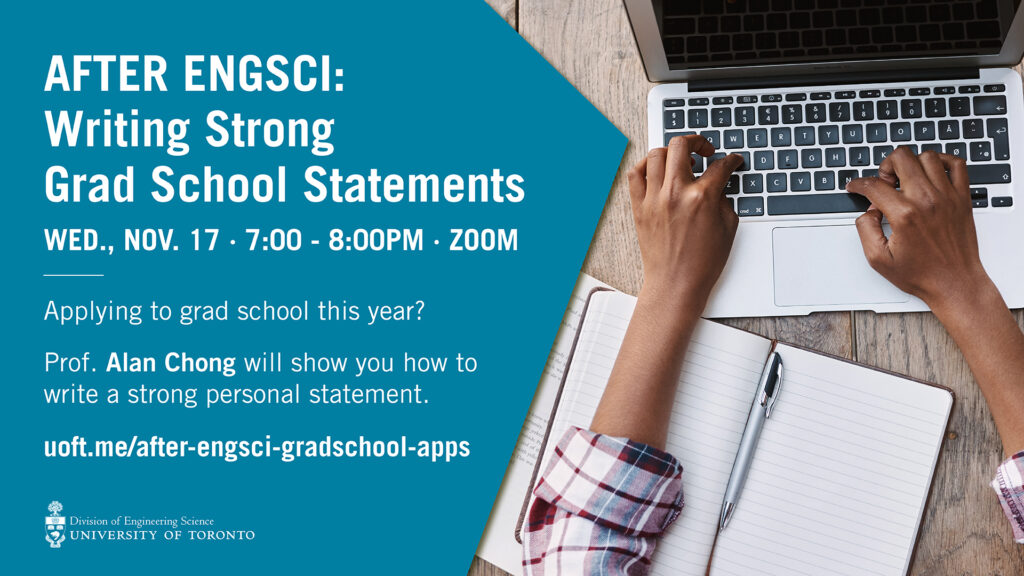On June 24 and 25, 2021, the Faculty of Applied Science & Engineering is launching Engineering Research Days, a new virtual event that will bring together our research community and create opportunities for collaboration. U of T Engineering continues to be Canada’s top-ranked engineering school and consistently ranks in the global top 20. Our faculty are international leaders in their fields, innovative educators and dedicated mentors. U of T Engineering’s research strengths draw students and faculty from all over the world.
This year’s theme of ‘Empowering Innovation’ highlights U of T Engineering’s research accomplishments and spotlight opportunities for collaboration across faculty, external partners, industry representatives and the broader U of T community. Both the program and platform, Spatial Chat, are designed to foster and encourage interaction in an engaging and collaborative environment.
The program will feature:
Interactive fireside chats with keynote speakers
Panels on emerging research trends and themes
Poster sessions
Networking opportunities
This year’s research themes include:
Robotics & Autonomy
Advanced Materials & Manufacturing
Urban Engineering & Innovative Mobility
Engineering for Sustainability
Enabling Engineering through Artificial Intelligence
Health & Bioengineering
Electrification in Society
Computation, Communications & Connectivity
Reserve your spot
The event is open to all students, staff and faculty in U of T Engineering, as well as current and prospective industry partners and key stakeholders across the research ecosystem. Registration is required.
Register now

Fourth year EngSci students, are you applying to graduate school this year?
Join Prof. Alan Chong for a special session to learn how to put your best foot forward with a strong personal statement.
This event has three components:
1. Watch Prof. Chong’s short video modules before the event—find them on the EngSci Info Hub’s Grad School Info page (utoriID login required):
- Understanding personal statements: What they are, and how to structure them
- Past experiences: Three example statements that show you how to decide what to include
- Future work, communication principles, and resources to help you
Once you’ve seen the videos, you probably have some questions about your specific situation, schools, and goals.
Come to the event to ask Prof. Chong about how to make the best impression and build a convincing argument for yourself through your personal statement.
2. Ask a question before the event
After you have watched the videos, you can submit or upvote questions for Prof. Chong ahead of the event through Slido, event code #966051. There will also be plenty of time to ask questions live during the event.
3. Attend the event
This event is open to EngSci students in their last year of study. Register for the session here. The Zoom link will be emailed to you.
 Join us this month as Professor Ervin Sejdić (ECE) will discuss the recent advances of artificial intelligence and how it is transforming the healthcare industry.
Join us this month as Professor Ervin Sejdić (ECE) will discuss the recent advances of artificial intelligence and how it is transforming the healthcare industry.
Artificial intelligence is an exciting field spanning computer science, engineering, mathematics, and statistics. In recent years, it has become a hot topic that promises to revolutionize many aspects of our daily lives ranging from our cars to our health. However, only a few truly understand what artificial intelligence represents, and how it can be helpful in our professional lives.
Professor Sejdić will address a question that we often ask ourselves: Will artificial intelligence replace my clinician? He will also cover some of recent developments dealing with artificial intelligence and dysphagia, a swallowing disorder caused by a variety of neurological conditions (e.g., stroke, cerebral palsy, Parkinson’s disease), head and neck cancer, genetic syndromes, and iatrogenic conditions or trauma. A recently proposed field called computational deglutition is a collaboration between clinicians and the data science community aimed at the development of clinically relevant algorithms that will aid clinicians during the assessment and treatment of swallowing disorders.
View Professor Sejdić’s professional bio and register for this free and exclusive event.
